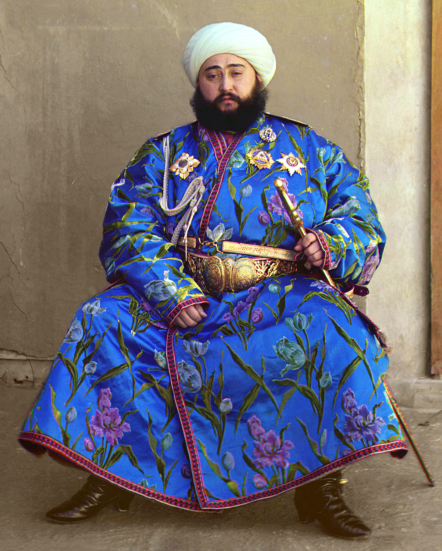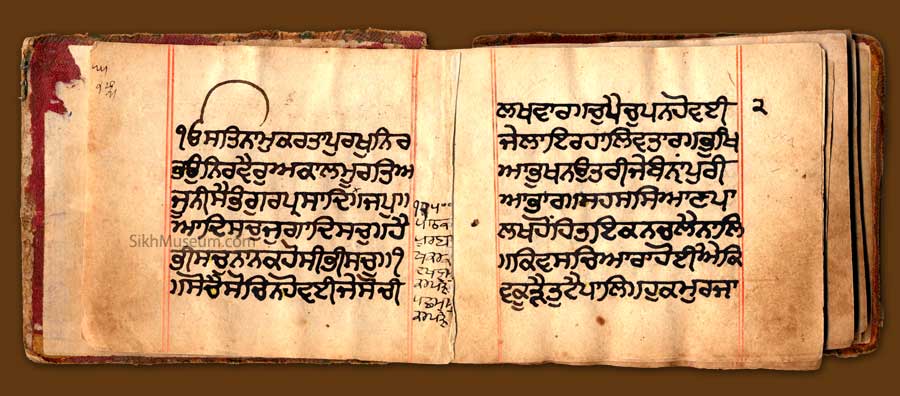|
Patka
A dastār ( pa, ਦਸਤਾਰ/دستار, from fa, دستار; ''dast'' or "hand" with the agentive suffix -ār; also known as a ਪੱਗ ''paga'' or ਪੱਗੜੀ ''pagaṛī'' in Punjabi) is an item of headwear associated with Sikhism, and is an important part of Sikh culture. The word is loaned from Persian through Punjabi. In Persian, the word ''dastār'' can refer to any kind of turban and replaced the original word for turban, ''dolband'' (دلبند), from which the English word is derived. Among the Sikhs, the ''dastār'' is an article of faith that represents equality, honour, self-respect, courage, spirituality, and piety. The Khalsa Sikh men and women, who keep the Five Ks, wear the turban to cover their long, uncut hair ('' kesh''). The Sikhs regard the ''dastār'' as an important part of the unique Sikh identity. After the ninth Sikh Guru, Tegh Bahadur, was sentenced to death by the Mughal emperor Aurangzeb, Guru Gobind Singh, the tenth Sikh Guru created th ... [...More Info...] [...Related Items...] OR: [Wikipedia] [Google] [Baidu] |
Kesh (Sikhism)
In Sikhism, kesh (sometimes kes) (Gurmukhi: ਕੇਸ) is the practice of allowing one's hair to grow naturally out of respect for the perfection of God's creation. The practice is one of The Five Kakaars, the outward symbols ordered by Guru Gobind Singh in 1699 as a means to profess the Sikh faith. The hair is combed twice daily with a kanga, another of the five Ks, and tied into a simple knot known as a ''joora'' or ''rishi knot''. This knot of hair is usually held in place with the kanga and covered by a turban. The 52 commands of Guru Gobind Singh written at Hazur Sahib at Nanded in the state of Maharashtra, mention that the kesh (hair) should be revered as the form of the Satguru (eternal guru) whom they consider as the same as god. For this reason by practitioners they are kept with the utmost respect. This includes regular maintenance of hair which includes but is not limited to combing at least twice daily, washing regularly and not allowing for public touching. Signifi ... [...More Info...] [...Related Items...] OR: [Wikipedia] [Google] [Baidu] |
Turban
A turban (from Persian language, Persian دولبند, ''dulband''; via Middle French ''turbant'') is a type of headwear based on cloth winding. Featuring many variations, it is worn as customary headwear by people of various cultures. Communities with prominent turban-wearing traditions can be found in the Indian subcontinent, Southeast Asia, the Arabian Peninsula, the Middle East, the Balkans, the Caucasus, Central Asia, North Africa, West Africa, East Africa, and amongst some Turkic peoples in Russia as well as Ashkenazi Jews. A keski is a type of turban, a long piece of cloth roughly half the length of a traditional "single turban", but not cut and sewn to make a double-width "Double Turban" (or Double Patti). Wearing turbans is common among Sikh men, and infrequently women. They are also worn by Hindu monks. The headgear also serves as a religious observance, including among Shia Islam, Shia Muslims, who regard turban-wearing as ''Sunnah mu’akkadah'' (confirmed traditi ... [...More Info...] [...Related Items...] OR: [Wikipedia] [Google] [Baidu] |
Turban
A turban (from Persian language, Persian دولبند, ''dulband''; via Middle French ''turbant'') is a type of headwear based on cloth winding. Featuring many variations, it is worn as customary headwear by people of various cultures. Communities with prominent turban-wearing traditions can be found in the Indian subcontinent, Southeast Asia, the Arabian Peninsula, the Middle East, the Balkans, the Caucasus, Central Asia, North Africa, West Africa, East Africa, and amongst some Turkic peoples in Russia as well as Ashkenazi Jews. A keski is a type of turban, a long piece of cloth roughly half the length of a traditional "single turban", but not cut and sewn to make a double-width "Double Turban" (or Double Patti). Wearing turbans is common among Sikh men, and infrequently women. They are also worn by Hindu monks. The headgear also serves as a religious observance, including among Shia Islam, Shia Muslims, who regard turban-wearing as ''Sunnah mu’akkadah'' (confirmed traditi ... [...More Info...] [...Related Items...] OR: [Wikipedia] [Google] [Baidu] |
Sikh Man, Agra 10
Sikhs ( or ; pa, ਸਿੱਖ, ' ) are people who adhere to Sikhism (Sikhi), a monotheistic religion that originated in the late 15th century in the Punjab region of the Indian subcontinent, based on the revelation of Guru Nanak. The term ''Sikh'' has its origin in the word ' (), meaning 'disciple' or 'student'. Male Sikhs generally have '' Singh'' ('lion'/'tiger') as their last name, though not all Singhs are necessarily Sikhs; likewise, female Sikhs have ''Kaur'' ('princess') as their last name. These unique last names were given by the Gurus to allow Sikhs to stand out and also as an act of defiance to India's caste system, which the Gurus were always against. Sikhs strongly believe in the idea of "Sarbat Da Bhala" - "Welfare of all" and are often seen on the frontline to provide humanitarian aid across the world. Sikhs who have undergone the '' Amrit Sanchar'' ('baptism by Khanda'), an initiation ceremony, are from the day of their initiation known as Khalsa, and they ... [...More Info...] [...Related Items...] OR: [Wikipedia] [Google] [Baidu] |
Nihang
The Nihang or Akali (lit. "the immortals") is an armed Sikh warrior order originating in the Indian subcontinent. Nihang are believed to have originated either from Fateh Singh and the attire he wore or from the "Akali" (lit. Army of the Immortal) started by Guru Hargobind. Early Sikh military history was dominated by the Nihang, known for their victories where they were heavily outnumbered. Traditionally known for their bravery and ruthlessness in the battlefield, the Nihang once formed the irregular guerrilla squads of the armed forces of the Sikh Empire, the Sikh Khalsa Army. Akali The ''word Akali/akaali'' means timeless or immortal. Literally, one who belongs to ''Akaal'' (beyond Time). In other words, an Akaali is that person who is subject of none but God only. Conceptually speaking, the terms Akaali, Khalsa and Sikh are synonymous. The term Akaali was first used during the time of Guru Gobind Singh Sahib. The term Akaali became popular in the last decades of the e ... [...More Info...] [...Related Items...] OR: [Wikipedia] [Google] [Baidu] |
Afghanistan
Afghanistan, officially the Islamic Emirate of Afghanistan,; prs, امارت اسلامی افغانستان is a landlocked country located at the crossroads of Central Asia and South Asia. Referred to as the Heart of Asia, it is bordered by Pakistan to the east and south, Iran to the west, Turkmenistan to the northwest, Uzbekistan to the north, Tajikistan to the northeast, and China to the northeast and east. Occupying of land, the country is predominantly mountainous with plains in the north and the southwest, which are separated by the Hindu Kush mountain range. , its population is 40.2 million (officially estimated to be 32.9 million), composed mostly of ethnic Pashtuns, Tajiks, Hazaras, and Uzbeks. Kabul is the country's largest city and serves as its capital. Human habitation in Afghanistan dates back to the Middle Paleolithic era, and the country's Geostrategy, strategic location along the historic Silk Road has led it to being described, pict ... [...More Info...] [...Related Items...] OR: [Wikipedia] [Google] [Baidu] |
Afghan Sikh Officers Of Hodson's Horse, A Cavalry Regiment Of The British Indian Army
Afghan may refer to: *Something of or related to Afghanistan, a country in Southern-Central Asia *Afghans, people or citizens of Afghanistan, typically of any ethnicity **Afghan (ethnonym), the historic term applied strictly to people of the Pashtun ethnicity **Ethnic groups in Afghanistan, people of various ethnicities that are nationally Afghan *Afghan Hound, a dog breed originating in the mountainous regions of Afghanistan and the surrounding regions of Central Asia *Afghan (blanket) * Afghan coat *Afghan cuisine People * Sediq Afghan (born 1958), Afghan philosopher * Asghar Afghan (born 1987), former Afghan cricketer * Afgansyah Reza (born 1989), Indonesian musician also known as "Afgan" * Afghan Muhammad (died 1648), Afghan khan in modern day Russia * Azad Khan Afghan (died 1781), Afghan Commander and Ruler Places * Afghan, Iran, a village in Sistan and Baluchestan Province, Iran Other uses * Afghan (Australia), camel drivers from Afghanistan and Pakistan who came to ... [...More Info...] [...Related Items...] OR: [Wikipedia] [Google] [Baidu] |
Sikh Triditional Turban Dumalla
Sikhs ( or ; pa, ਸਿੱਖ, ' ) are people who adhere to Sikhism (Sikhi), a monotheistic religion that originated in the late 15th century in the Punjab region of the Indian subcontinent, based on the revelation of Guru Nanak. The term ''Sikh'' has its origin in the word ' (), meaning 'disciple' or 'student'. Male Sikhs generally have ''Singh'' ('lion'/'tiger') as their last name, though not all Singhs are necessarily Sikhs; likewise, female Sikhs have ''Kaur'' ('princess') as their last name. These unique last names were given by the Gurus to allow Sikhs to stand out and also as an act of defiance to India's caste system, which the Gurus were always against. Sikhs strongly believe in the idea of "Sarbat Da Bhala" - "Welfare of all" and are often seen on the frontline to provide humanitarian aid across the world. Sikhs who have undergone the ''Amrit Sanchar'' ('baptism by Khanda'), an initiation ceremony, are from the day of their initiation known as Khalsa, and they mu ... [...More Info...] [...Related Items...] OR: [Wikipedia] [Google] [Baidu] |
Punjab, India
Punjab (; ) is a States and union territories of India, state in northern India. Forming part of the larger Punjab region of the Indian subcontinent, the state is bordered by the States and union territories of India, Indian states of Himachal Pradesh to the north and northeast, Haryana to the south and southeast, and Rajasthan to the southwest; by the Indian union territory, union territories of Chandigarh to the east and Jammu and Kashmir (union territory), Jammu and Kashmir to the north. It shares an international border with Punjab, Pakistan, Punjab, a Pakistani province, province of Pakistan to the west. The state covers an area of 50,362 square kilometres (19,445 square miles), which is 1.53% of India's total geographical area, making it List of states and union territories of India by area, the 19th-largest Indian state by area out of 28 Indian states (20th largest, if UTs are considered). With over 27 million inhabitants, Punjab is List of states and union territories of ... [...More Info...] [...Related Items...] OR: [Wikipedia] [Google] [Baidu] |
Guru
Guru ( sa, गुरु, IAST: ''guru;'' Pali'': garu'') is a Sanskrit term for a "mentor, guide, expert, or master" of certain knowledge or field. In pan-Indian traditions, a guru is more than a teacher: traditionally, the guru is a reverential figure to the disciple (or '' shisya'' in Sanskrit, literally ''seeker f knowledge or truth'' or student, with the guru serving as a "counselor, who helps mold values, shares experiential knowledge as much as literal knowledge, an exemplar in life, an inspirational source and who helps in the spiritual evolution of a student". Whatever language it is written in, Judith Simmer-Brown explains that a tantric spiritual text is often codified in an obscure twilight language so that it cannot be understood by anyone without the verbal explanation of a qualified teacher, the guru. A guru is also one's spiritual guide, who helps one to discover the same potentialities that the ''guru'' has already realized. The oldest references to the concep ... [...More Info...] [...Related Items...] OR: [Wikipedia] [Google] [Baidu] |
Gurbani
Gurbani ( pa, ਗੁਰਬਾਣੀ) is a Sikh term, very commonly used by Sikhs to refer to various compositions by the Sikh Gurus and other writers of Guru Granth Sahib. In general, hymns in the central text of the Sikhs, the Guru Granth Sahib, are called ''Gurbani''. Among Amritdhari Sikhs, a few texts from Dasam Granth which are read as Nitnem, like ''Tav-Prasad Savaiye'' and ''Chaupai'', are also considered ''Gurbani''. In Adi Granth, Gurbani is a sound which comes directly from the Supreme and the text is a written form of the same in worldly language and scripts. It is also called ''Guru´s Bani''. Gurbani are explanations of qualities of the Primal Lord and Soul which a Sikh should comprehend and with which they can attain the supreme state. Sikh historical writings, unauthentic writings or apocryphal compositions written under the names of Sikh Gurus and other writings by Sikhs are not considered Gurbani and are referred to as ''Kachi Bani'' (ਕੱਚੀ ਬਾਣ� ... [...More Info...] [...Related Items...] OR: [Wikipedia] [Google] [Baidu] |
Pigeons In Bombay
Columbidae () is a bird family consisting of doves and pigeons. It is the only family in the order Columbiformes. These are stout-bodied birds with short necks and short slender bills that in some species feature fleshy ceres. They primarily feed on seeds, fruits, and plants. The family occurs worldwide, but the greatest variety is in the Indomalayan and Australasian realms. The family contains 344 species divided into 50 genera. Thirteen of the species are extinct. In English, the smaller species tend to be called "doves" and the larger ones "pigeons". However, the distinction is not consistent, and does not exist in most other languages. Historically, the common names for these birds involve a great deal of variation between the terms. The bird most commonly referred to as just "pigeon" is the domestic pigeon, which is common in many cities as the feral pigeon. Doves and pigeons build relatively flimsy nests, often using sticks and other debris, which may be placed on b ... [...More Info...] [...Related Items...] OR: [Wikipedia] [Google] [Baidu] |









